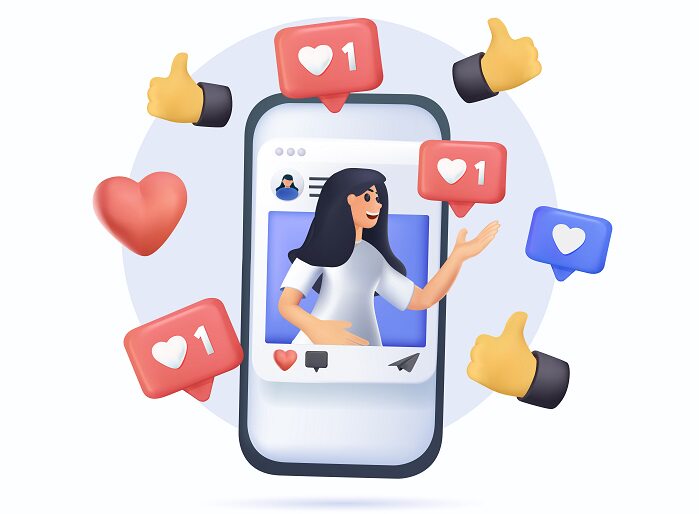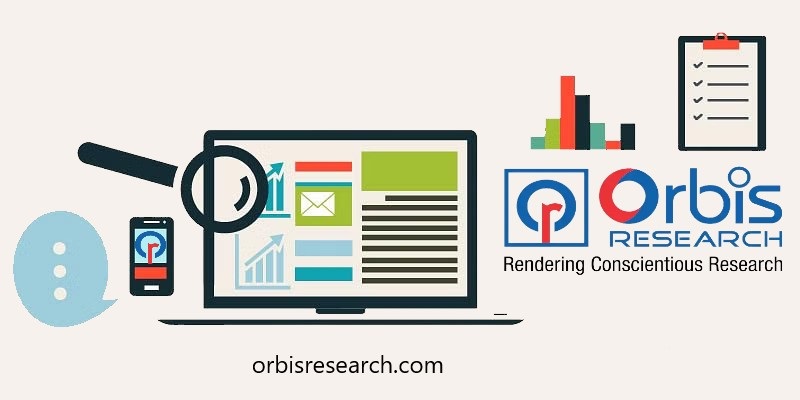One golden advice for running a successful business is to go where your customers are. That’s the core of what online marketing is, as it involves meeting your customers where they are: on the internet through their smartphones and laptops. Online marketing is growing in popularity and importance. For example, data shows that companies that invest in online marketing are more likely to succeed.1
What is online marketing? How can it help your business? What online strategies can you adopt to promote your business? We answered your question in this article! At the end of the article, you will be familiar with the strengths of online marketing, and you can leverage it for your business.
What is online marketing?
The internet is used for almost everything today: communication, shopping, movies, and learning. There are more than 4.33 billion internet users, which keeps increasing every second.2 The use of the internet and the large number of people that use it have presented an opportunity for business owners to reach so many people at once and at ease.
Online marketing—also known as digital marketing—is a form of marketing that leverages digital strategies and online channels to promote a business. It involves developing the right digital messaging for your target audience using the appropriate digital channels. In other words, any marketing strategy that relies on reaching customers through digital means and devices such as social media, phone apps, and podcasts is online marketing.
Online marketing is becoming increasingly popular. A study, for instance, showed that the second most popular way people check out for sellers in today’s marketplace is online.3 The first and most popular way is to ask their peers or colleagues for recommendations.
The key to successful marketing has always been connecting with your audience at the right place and time. In today’s world, when screen time is on the rise, the right place is on the internet! When you reach your customers through the internet, it is online marketing.
Benefits of online marketing
You will miss out on many benefits if you don’t market your business online. Some of the benefits of online marketing include.
Cost-effectiveness and adjustability
One of the major benefits of online marketing is that it is less expensive to use. A HubSpot study says online marketing costs 61% less than offline marketing.1 Most of the costs involved in online marketing are low, especially compared to traditional marketing. Whether you want to promote to an international audience or to a local audience, there is always a cost-effective solution to reach your marketing goals. In fact, most digital marketing strategies might not cost you anything at all.
Personalization and customer engagement
Digital marketing is highly engaging as it lets you interact with customers in real time. Also, digital marketing enables you to create engaging campaigns like shareable images and videos that may even go viral.
In addition, it’s easy to personalize your offerings and campaigns with online marketing. Customer databases are often accessible online, so it’s easy to greet customers with targeted offers when they visit your site. With customer data and artificial intelligence, you can also personalize the customer experience by sending tailored promotional campaigns and greeting your customers by their first names.
Measuring and tracking results
The best part about digital marketing is that your efforts and consumers’ actions can be measured. You will know when a user shares your blog post, like a social media post, or clicks your paid ads. The ability to measure the results of your digital campaigns in real-time makes it easy to improve future campaigns and fix mistakes.
Types of online marketing
There are different types of online marketing, each comprising different strategies, tactics, and sometimes channels. One of the best things about the different kinds of online marketing is that they complement each other. For this reason, you can combine 2 or all types of marketing to reach your marketing goals.
Let’s have a look at some of the types of online marketing and how they work:
1. Website marketing
Websites are like the virtual location of a business and can be a great way to promote your business. Website marketing refers to the efforts involved in driving traffic to your website and engaging people who visit your website.
Why do we need website traffic? More traffic on your website will translate to increased sales and revenue.
Website marketing often involves strategies like SEO, paid ads, and content marketing to get more traffic. In addition, website marketing includes web design, user experience, backlinking, and up-to-date content.
2. Search engine optimization (SEO)
Search engine optimization (SEO) encompasses all the efforts and strategies taken to optimize your website in order to rank higher on search engine results. The main goal of SEO is to increase organic traffic by appearing at the top of search engine results when potential customers search for services/products you offer. For example, let’s assume you want your business to appear at the top of Google’s search results when someone types “gears for outdoor activities”. In this case, the process to make that happen is SEO. Websites that rank at the top of search engines often get more than 50% of the traffic for their target keywords.4
There are a variety of tactics involved in SEO, including:
- Researching relevant keywords
- Optimizing your website and content around keywords
- Creating relevant content
- Including meta information and optimizing headings
- Internal and external linking
3. Pay-per-click (PPC) advertising
Pay-per-click or PPC advertising refers to paid advertisements to promote your business and feature on the top of search engine results. PPC advertising is often through Google Ads and other search engines like Bing. PPC has a budget for everyone, whether 10 dollars or thousands of dollars, depending on the size of your campaign. Another thing that makes PPC a unique form of advertising is that you only pay after someone clicks on your advertisement. In other words, you only pay after you get results from your ads.
Meanwhile, PPC is considered short-term marketing because once you discontinue your campaign, the traffic generated from your campaign is also discontinued.
The primary goal of PPCs is to generate leads and increase sales by compelling users to take specific actions like:
- Downloading an ebook,
- Scheduling a consultation
- Making a purchase, etc.
PPC marketing allows users to track their campaigns to see how people are reacting to them. You can tell the number of views and clicks and the percentage of conversion.
4. Content marketing
According to a statistic, 84% of customers expect companies to produce helpful content.5 Content marketing refers to using storytelling and informative content to increase brand awareness. Content in this context can be blog posts, e-books, infographics, emails, case studies, podcasts, digital videos, or anything that provides some information for customers.
One of the tricks to doing content marketing right is providing value to customers. So, instead of promoting your products, you could try creating content that solves a problem, answers a question, or offers some tips for customers. This article you’re currently reading is an example of content marketing! Your content should be more about helping your customers than offering unsolicited promotions.
Some of the major goals of content marketing are to improve brand awareness, nurture leads, and educate your target audience.
A great practice of content marketing is offering content for different stages of the sales funnel. For example, someone on a website for the first time to see what you do will need different content from a customer on your website to schedule a consultation. The best content marketers focus on understanding their audience persona and their journeys through the sales funnel. This is so that they can come up with content that can address their specific needs.
5. Social media marketing

As the name suggests, social media marketing boosts brand awareness, customer acquisition, and sales through social media platforms like Instagram and Facebook.
Social media marketing is very effective because it allows business owners to perform many functions, like promoting content, building brand awareness, engaging customers, and showcasing products. This form of marketing is one of the most popular mediums for B2B and B2C sellers to gain attention.6
One of the benefits of social media marketing is that it is very cost-effective. With a low budget, you can leverage social media marketing to boost brand awareness and improve sales.
Social media marketing also offers paid advertising for businesses to promote their social media content to desired audiences. This form of marketing also provides built-in analytics, which helps understand your efforts to reach your audiences.
Some tips for getting the best from social media marketing include:
- Identifying the best social media channels to reach your audience
- Sharing high-quality and attractive content
- Engaging with customers by replying to comments, asking for feedback, and solving complaints.
- Being consistent and posting at the right time
6. Email marketing
Email marketing might be the last on the list, but it is one of the most effective Internet marketing techniques to engage with existing customers and convert your audience into customers. For instance, email marketing had a median return on investment of 122%!7 With email marketing, you send direct marketing messages to your audience through emails. Email marketing traffic is cost-effective and valuable for sending traffic to your website.
Some of the tips to make emails more appealing to your users and move you faster to your marketing goals include:
- Using an attractive email subject
- Creating a sense of urgency
- Personalizing your email (for example, you could use the customer’s first name)
- Give the option for customers to set their preferences
- Use pop-ups
- Including CTAs and links to your website
7. Influencer marketing
Influencer marketing is one of the trending types of online marketing at the moment. This form of marketing involves partnering with influential people in your niche to promote your products and business. To get started with influencer marketing, you must identify influencers that align with your brand and have enough followers. Next, contact them to collaborate. Some ways to collaborate with influencers include:
- Promoting your product
- Social media takeover
- Sending them a sample of your products for review
- Offering a discount or promo code for their audience
- Hosting a webinar or live video
- Creating content centered around your brand
Influencer marketing works great because influencers are considered trusted people, so people are likely to buy from businesses they endorse.
Implementing online marketing strategies
Now that you know what is online marketing and its type, let’s look at how to build a digital marketing strategy:
Identifying your target audience
The first step to building a digital marketing strategy is identifying and understanding the people likely to buy from you. It would also be best to create a buyer persona for your audience. Buyer personas are fictional characters developed to represent the characters and traits of those who are likely to be your buying customers. Some characteristics to look out for when building a buyer persona include:
- Age/gender
- Location
- Occupation
- Hobbies
- Pain points,
- Goals.
The rationale behind creating a buyer persona is to understand your different types of customers and how to address their needs.
Choosing the right marketing channels
As mentioned earlier, there are different types of online marketing and different channels to launch your campaigns. You can use the website, social media, or emails. While it’s recommended to try out different marketing strategies, it’s also essential to choose the proper channels for your campaigns. Some of the main things you should consider when selecting a channel are:
- Goal (do you want to increase website traffic or social media followers?)
- Budget (do you want a free, low-budget, or average-budget campaign?)
- Target audience (what platforms appeal to them the most? Are they more likely to use social media than open their emails?)
Creating quality content
You have identified the relevant channels to distribute your campaigns; the next step is content creation. What is the exact information you want to pass, and how do you want it executed? An important tip for content creation is to create something appealing to your customers.
Optimizing for SEO
SEO increases your website traffic, so optimizing your website and content to rank higher on search engines is important. By optimizing for SEO, your websites will get more organic traffic and convert more leads into customers. Use keywords to optimize your content for users’ needs and relevant search terms, ensure your website is mobile-friendly, and invest in backlinks. All these tips will make it easier for search engines to identify your content as helpful and will rank your website higher on search results.
Monitoring and tracking
Monitor and track the performance of your online marketing campaigns to help you understand how you can improve. For example, you might notice that you get more customers through social media than PPC ads or more engagement on your TikTok than on Instagram. Then, you can decide to invest more in social media to drive more revenue instead of wasting your budget on mediums that aren’t helping your business.
FAQs about online marketing
What is online marketing, and example?
Online marketing uses digital marketing strategies and channels to send promotional or informational messages to your target audience. Emails, banner ads, blogs, PPC, and social media marketing are some examples of internet marketing.
How does “online marketing” work?
Online marketing works by leveraging online channels like social media, search engines, email, and websites to connect with customers, build brand awareness, and generate sales.
What are the different types of online marketing strategies?
Some of the main types of online marketing strategies include Search Engine Optimization (SEO), content marketing, social media marketing, email marketing, influencer marketing, affiliate marketing, and pay-per-click advertising. All types of online marketing strategies involve digital communication, making them online marketing.
How can a business benefit from implementing online marketing?
Digital marketing offers many advantages that can boost a business’s marketing effort. Online marketing allows businesses to reach more customers, is cost-effective, offers quantifiable results, allows for personalization, and encourages customer engagement. Online marketing also allows for easy conversions and increased sales.
Sell on Alibaba.com
Now that you know “what is online marketing”, it’s time to implement a strategy! Online marketing has become an essential strategy for every business owner who wants to scale their business. Never has there been a way to reach many customers at once. The more you invest in digital marketing, the more you get closer you get to your goals. Hb
If you already have a digital marketing strategy, evaluate it and figure out how to improve it. Also, identify how your digital marketing channels are working for you and review your existing content.
Another way to boost your online marketing efforts is to leverage Alibaba.com! With Alibaba.com, you can reach many customers, access a storefront, and boost your sales. Alibaba.com also offers marketing tools like keyword advertising and paid ads to reach more customers. Reading to sell to a global audience and reach your business goals? Join Alibaba.com today!
References:
1. https://www.hubspot.com/marketing-statistics
2. https://www.oberlo.com/blog/internet-statistics
3. https://hingemarketing.com/library/article/inside-the-buyers-brain-fourth-edition-executive-summary
4. https://www.smartinsights.com/search-engine-optimisation-seo/seo-analytics/comparison-of-google-clickthrough-rates-by-position/
5. https://www.smartinsights.com/content-management/b2b-content-marketing-research-insights/
6. https://www.convinceandconvert.com/social-media-marketing/social-media-trends-2019/
7. https://www.emarketer.com/Article/Email-Continues-Deliver-Strong-ROI-Value-Marketers/1014461
https://seller.alibaba.com/businessblogs/px002968p-what-is-online-marketing-an-ultimate-guide—alibaba-seller





